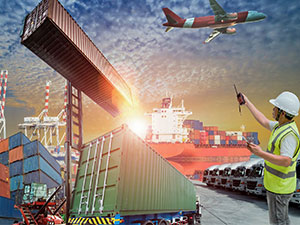Blog Details

Can India-Russia Economic Ties Remain Resilient Amid Sanctions?
Economic Relationship between India and Russia
The economic relationship between India and Russia has long been underpinned by strategic cooperation and shared interests. However, recent international sanctions on Russia, primarily imposed by Western countries, have strained this partnership. As the global political landscape evolves in 2024, these sanctions pose significant challenges to bilateral trade and economic resilience. This article explores whether India and Russia can sustain their economic ties amid these pressures.
The Impact of Sanctions on Trade
Sanctions on Russia, targeting sectors such as finance, energy, and defense, have disrupted its economic interactions with the global community. For India, which has deep ties with Russia in defense procurement and energy imports, these sanctions have created complex challenges. One major issue is the disruption of payment mechanisms. The exclusion of Russian banks from the SWIFT system has complicated transactions, making it difficult for Indian companies to pay for goods and services. Recent reports highlight that this exclusion has significantly impacted financial transactions between the two countries, as noted by CNBC in May 2024.
This disruption is particularly acute in the defense sector, where India has historically relied on Russian military hardware. With sanctions restricting the export of certain technologies and components, India has faced delays and increased costs in maintaining and upgrading its defense systems. The Indian Ministry of Defense has announced efforts to diversify its defense suppliers, including new agreements with France and the United States, according to The Economic Times in July 2024.
Supply Chain Disruptions
The sanctions have also caused significant supply chain disruptions, particularly in industries reliant on high-tech imports. For instance, restrictions on exporting dual-use goods to Russia have affected the supply of electronics, machinery, and other critical components. Indian companies that depend on these imports have had to navigate increased costs and longer lead times, impacting production schedules and profitability. Industry reports have detailed the cascading effects on global supply chains, emphasizing the need for alternative sources, as highlighted by Forbes in June 2024.
Moreover, the energy sector has felt the repercussions of sanctions. While India continues to import oil and gas from Russia, restrictions on Russian energy companies have led to volatility in supply and pricing. This uncertainty has driven India to explore new energy partnerships and diversify its import sources, including potential collaborations with Middle Eastern and African nations. Recent developments have seen India strengthening its energy ties with countries like Saudi Arabia and Nigeria, according to Reuters in April 2024.
Opportunities for Strengthening Ties
Despite the challenges, there are opportunities for India and Russia to bolster their economic relationship. One potential area is expanding bilateral trade in sectors not directly affected by sanctions. For example, India could increase its exports of pharmaceuticals, agricultural products, and IT services to Russia. These industries have the potential to strengthen economic ties without triggering sanction-related complications. Recent trade negotiations have focused on increasing these exports, reflecting a strategic pivot in economic policy, as noted by The Hindu in August 2024.
Furthermore, both countries can explore collaboration in emerging sectors such as space exploration, cybersecurity, and artificial intelligence. These fields offer significant growth potential and opportunities for joint ventures. For instance, India's ISRO and Russia's Roscosmos are discussing new joint missions and technological collaborations in space, as reported by Space.com in July 2024.
The Geopolitical Dimension
The geopolitical dimension of India-Russia relations is a crucial factor in determining the resilience of their economic ties. As India seeks to maintain its policy of strategic autonomy, it faces the delicate task of balancing its relationships with Russia and other major powers, including the United States and European Union. This balancing act is particularly challenging given the growing polarization in international politics.
In 2024, India has continued to engage with Russia while simultaneously strengthening its ties with Western nations. This approach allows India to navigate the complexities of global geopolitics, leveraging its strategic partnerships to secure its national interests. However, the long-term sustainability of this approach will depend on India's ability to manage competing pressures and maintain a consistent foreign policy. Recent diplomatic efforts reflect India's nuanced approach to balancing these relationships, as observed by The Times of India in June 2024.
Conclusion
In conclusion, the resilience of **India-Russia economic ties** amid sanctions is a complex issue shaped by multiple factors. While sanctions have undoubtedly posed challenges, they have also opened new avenues for cooperation and diversification. As both countries navigate these challenges, their ability to adapt and innovate will be critical in sustaining their economic relationship.
4PL Consultancy has a team of experts in Tariff classifications of wide variety of Product lines – Medical spares, Aerospace, Radiation Oncology machines & spares etc.





